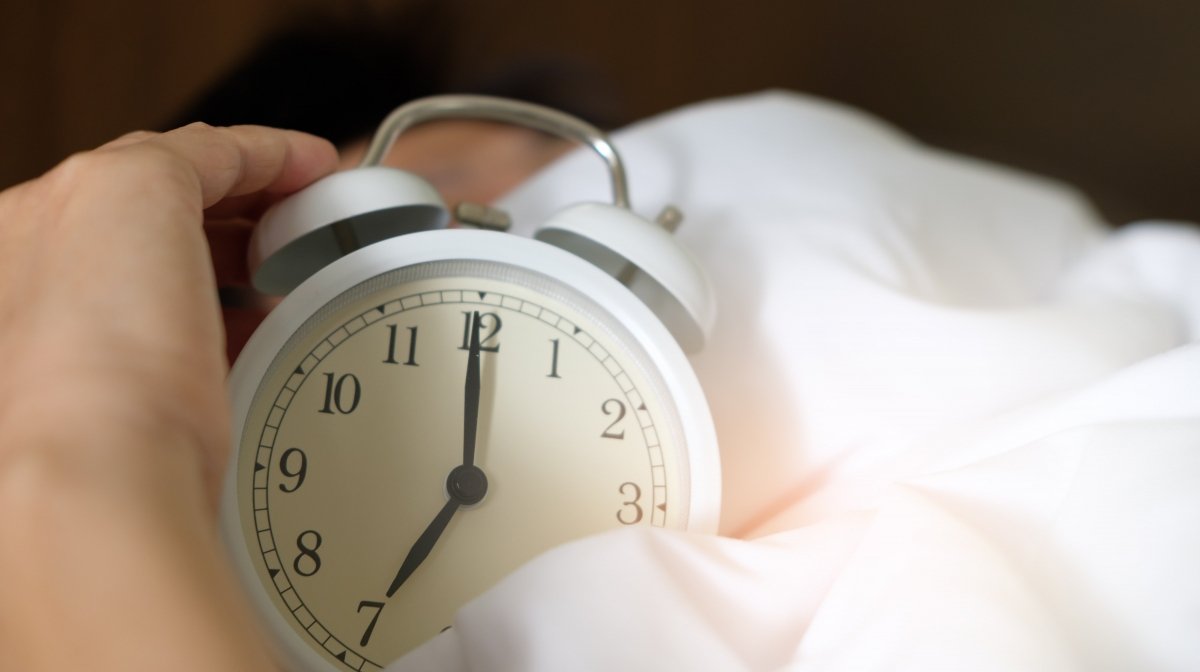
If you are trying to lose weight on the exante diet plan sleep may often be overlooked, but it may be more important than you think. The average person in the UK is now only getting 6.3h of sleep per night according to a recent study (1). A large body of research suggests a lack of sleep may be hindering your weight loss efforts. If you want to maximise your results when following the exante meal replacement diet, we strongly recommend you read our tips and tricks for a better night’s sleep, along with reasons why sleep may have an impact on your weight loss journey!
Is a lack of sleep associated with weight gain and obesity?
Individuals displaying short sleep durations have been linked with higher BMI’s and risk of obesity (2). Sleep requirements typically vary, but research suggests that weight gain is associated with less than 7 hours of sleep per night (3).
For example, one study allowed participants just 5 hours of sleep a night for 5 nights. It was found subjects consumed additional calories during this period and gained 0.82kg (1.8lb) over the 5 days (4). Although a lack of sleep is generally associated with weight gain, it is not considered the single causing factor. Typically, a calorie surplus will cause weight gain and a calorie deficit will cause weight loss.
Can a lack of sleep affect your metabolism?
Your resting metabolic rate (RMR) is the number of calories your body burns at rest. One study found that sleep restriction resulted in a decreased RMR in healthy adults, which was attributed to the body attempting to ‘conserve energy’ (5, 6). If you burn fewer calories per day at rest, then you are more likely to gain weight.
Is appetite affected by sleep duration?
When you have had insufficient sleep the satiety hormone leptin decreases, while the hunger-stimulating hormone ghrelin increases (7, 8). These hormonal changes can increase appetite by about 15%, making your diet even more challenging to adhere too! (9). In one study men who slept four hours ate on average 559 more calories the next day compared to when they were allowed 8 hours’ sleep (10).
Can a lack of sleep increase insulin resistance?
Insulin is a hormone that helps control blood sugar levels by transporting sugar from the bloodstream into your body cells to be used as energy. When cells begin to become resistant to insulin, a greater amount of sugar remains in the bloodstream which means more insulin needs to be produced to compensate. Insulin resistance is associated with type 2 diabetes and weight gain (10).
In one study, men who slept four hours for six consecutive nights saw their bodies ability to lower blood sugar decrease by 40% (11). This study suggests that just six nights of poor sleep can increase insulin resistance.
How much sleep should you be getting a night?
Sleep duration requirements vary depending on age and from person to person. However, in a recent study carried out by The National Sleep Foundation, it was suggested adults should be getting 7-9 hours’ sleep a night (12). We know this can be tough to stick to at times. However, by sleeping these suggested hours you are giving yourself the best possible chance of achieving your weight loss goals!
Tips for a better night’s sleep
Maintain a consistent sleeping schedule, even on weekends
Turn off the lights before bed as this releases the body’s natural sleep hormone ‘melatonin’
Avoid caffeine at least 6 hours before bed
Optimise your bedroom temperature
Turn off all electronics at least an hour before bed – read a book instead!
Create a relaxing bedtime ritual, this could be a hot bath or shower
Getting a good night’s sleep every night alone will not result in you achieving your weight loss goals. In order to induce weight loss, you need to be consuming fewer calories than you are expending each day. However, to maximise your weight loss journey when following a diet plan such as the very low calorie diet plan by exante, we recommend you carefully consider your sleep routine and ensure you are routinely getting a good night’s sleep. We want to ensure you are seeing the optimal results from this meal replacement diet, and so take good care to get plenty of restful sleep each evening.
References:
- https://www.chemist-4-u.com/sleep-study/#div3
- Cappuccio, F. P., Taggart, F. M., Kandala, N. B., Currie, A., Peile, E., Stranges, S., & Miller, M. A. (2008). Meta-analysis of short sleep duration and obesity in children and adults. Sleep, 31(5), 619-626.
- Beccuti, G., & Pannain, S. (2011). Sleep and obesity. Current opinion in clinical nutrition and metabolic care, 14(4), 402.
- Markwald, R. R., Melanson, E. L., Smith, M. R., Higgins, J., Perreault, L., Eckel, R. H., & Wright, K. P. (2013). Impact of insufficient sleep on total daily energy expenditure, food intake, and weight gain. Proceedings of the National Academy of Sciences, 110(14), 5695-5700.
- Spaeth, A. M., Dinges, D. F., & Goel, N. (2015). Resting metabolic rate varies by race and by sleep duration. Obesity, 23(12), 2349-2356.
- Nedeltcheva, A. V., Kilkus, J. M., Imperial, J., Schoeller, D. A., & Penev, P. D. (2010). Insufficient sleep undermines dietary efforts to reduce adiposity. Annals of internal medicine, 153(7), 435-441.
- Spiegel K, et al. (2004) Leptin levels are dependent on sleep duration: Relationships with sympathovagal balance, carbohydrate regulation, cortisol, and thyrotropin. J Clin Endocrinol Metab 89(11):5762–5771.
- Spiegel K, Tasali E, Penev P, Van Cauter E (2004) Brief communication: Sleep curtailment in healthy young men is associated with decreased leptin levels, elevated ghrelin levels, and increased hunger and appetite. Ann Intern Med 141(11):846–850.
- Taheri, S., Lin, L., Austin, D., Young, T., & Mignot, E. (2004). Short sleep duration is associated with reduced leptin, elevated ghrelin, and increased body mass index. PLoS medicine, 1(3), e62.
- Brondel, L., Romer, M. A., Nougues, P. M., Touyarou, P., & Davenne, D. (2010). Acute partial sleep deprivation increases food intake in healthy men. The American journal of clinical nutrition, 91(6), 1550-1559.
- Spiegel, K., Knutson, K., Leproult, R., Tasali, E., & Cauter, E. V. (2005). Sleep loss: a novel risk factor for insulin resistance and Type 2 diabetes. Journal of applied physiology, 99(5), 2008-2019.
- Hirshkowitz, M., Whiton, K., Albert, S. M., Alessi, C., Bruni, O., Don Carlos, L., & Neubauer, D. N. (2015). National Sleep Foundation’s sleep time duration recommendations: methodology and results summary. Sleep health, 1(1), 40-43.










